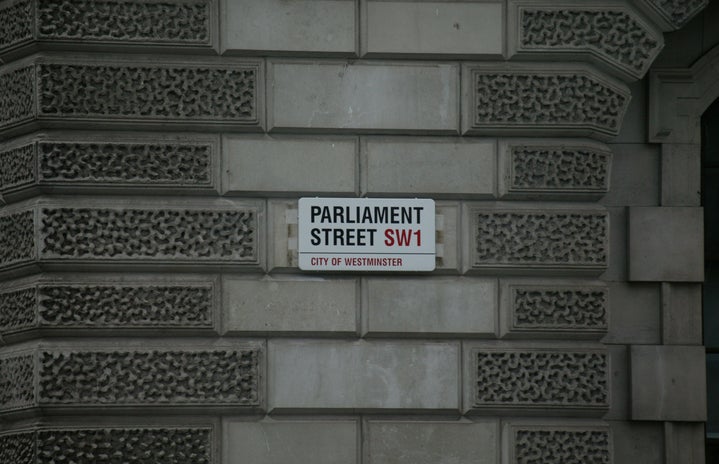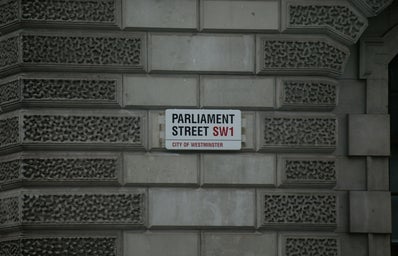Between Gary Lineker’s tweets and Holocaust survivors confronting the Home Secretary, you may have recently heard the Illegal Migration Bill mentioned on a regular basis. Here’s a breakdown of what it proposes and the damage it will cause:
The government states that the objectives of the bill are simple; to stop illegal migration through removing incentives, increasing the rate of removal of migrants and asylum seekers who cannot access ‘safe and legal’ routes, to prevent opportunities to abuse modern slavery protections and to ensure support to a “specific number of the most vulnerable refugees”. Here is the bill in question: Illegal Migration Bill – Parliamentary Bills – UK Parliament.
But what does this bill specifically entail?
This legislation would dictate that anyone who arrives to the UK via small boat will have their application to seek asylum immediatley deemed “inadmissable”, regardless of individual context or circumstance. The current provisions for these people are for them to be returned to the countries they risked their lives to flee, or be moved to a “safe third country”, with the main discussions surrounding Rwanda. Furthermore, if one’s application is deemed inadmissable and the refugee is removed, the bill bans any attempt to return to the UK.
It should also be noted that this is a retrospective bill which means, if it is passed, it will become immediatley applicable.
Whilst the government claim to seek to prevent the abuse of modern slavery protections, they appear to neglect any care for the possible infringements and violations this bill will have on human rights. The European Convention of Human Rights, of which the UK has been a signatory since 1953, has two specific articles that the Illegal Migration Bill threatens to interfere with:
Firstly, article three and its Prohibition of torture, most specifically its dictation that “No one shall be subjected to torture or to inhuman or degrading treatment or punishment.” Article eight also deems to be threatened; the article explicates that “Everyone has the right to respect for his private and family life, his home and his correspondence.” The migration legislation would hinder these rights and is assumed to inevitably be brought to court in Strasbourg.
Furthermore it has been made apparent that there are already a number of logistical and legal flaws within this legislation.
So far, of all the applications that the government have attempted to deem ‘inadmissable’, only 0.7% were accepted as such. Whilst depicting a poor success rate for the government in its attempt to dismiss applications, it also leaves a large number of asylum seekers in a state of limbo.
Furthermore, the decision to take refugees to Rwanda has been blocked and challenged by the courts under human rights law. The United Nations High Commission for Refugees (UNCHR) in their statement about the Illegal Migration Bill explains how the agreement with Rwanda “fails to meet the necessary international standards.”
Oliver Oldman, a senior associate at a prominent British law firm, reminds those pushing the bill that the UK is a signatory to the 1951 UN Refugee Convention which “expressly prohibits” punishment for refugees who enter the country.
It is hard to see how this bill could ever be passed when the front page of the official document contains a statement by Home Secretary Suella Braverman, declaring her inability to confirm that the Illegal Migration Bill is compatible with Convention rights.
What is ironic in its titling as the Illegal Migration Bill, is that it appears the legislation itself is unlawful.
Distractions surrounding the bill include the talks of impartiality at the BBC as Gary Lineker expresses his opinions on this legislation; the presenter highlights the extremity of an “immeasurably cruel policy directed at the most vulnerable people in language not dissimilar to that used by Germany in the 30s.” Lineker soon found himself being called to retract his statements or to step back from his role at the BBC, but has instead promised to “continue to try and speak up for those poor souls that have no voice.”
His opinion of similarities between German language in the lead up to the Holocaust was emphasised when Joan Salter, an 83-year-old Holocaust survivor, questioned Braverman as to why she felt the need to use language of invasions that, to Salter, were reminiscent of the same rhetoric used to justify her family’s death.
Braverman simply refused to apologise for these parallels.
This legislation demonstrates a lack of care and empathy in its complete disregarding and dehumanisation of refugees, refusing to view each circumstance individually and examine the context for each asylum seeker.
As part of the UNCHR statement on this asylum bill, which I would recommend reading in full, it was stated that “the effect of the bill (in this form) would be to deny protection to many asylum-seekers in need of safety and protection, and even deny them the opportunity to put forward their case. This would be a clear breach of the Refugee Convention and would undermine a longstanding, humanitarian tradition of which the British people are rightly proud.”
The Illegal Migration Bill is not only controversial, but inhumane.


